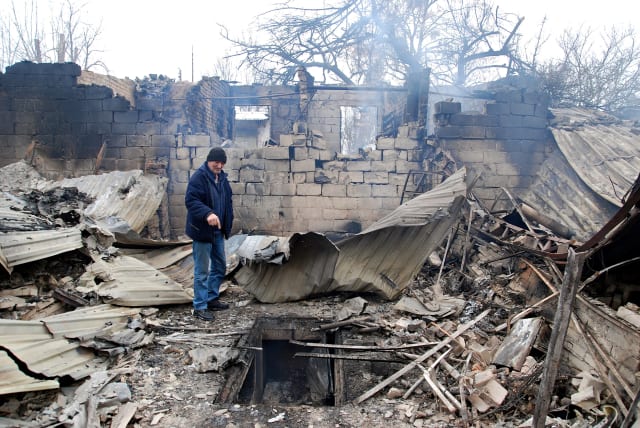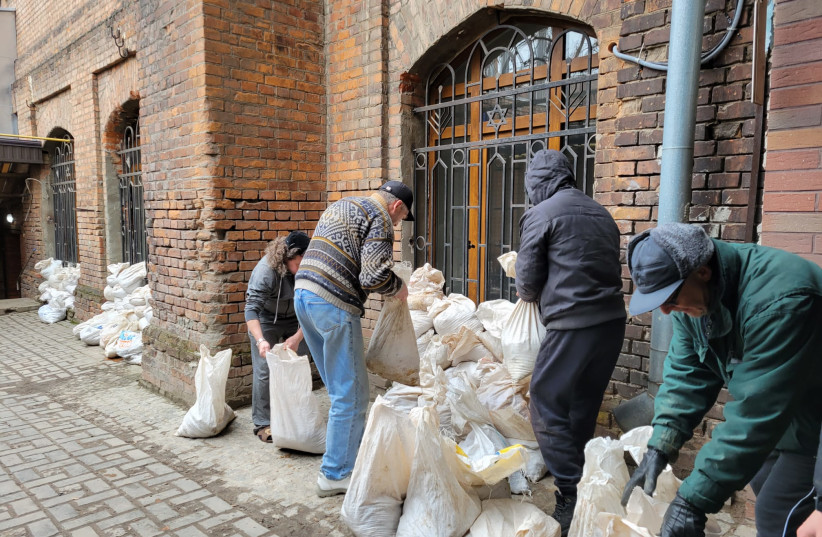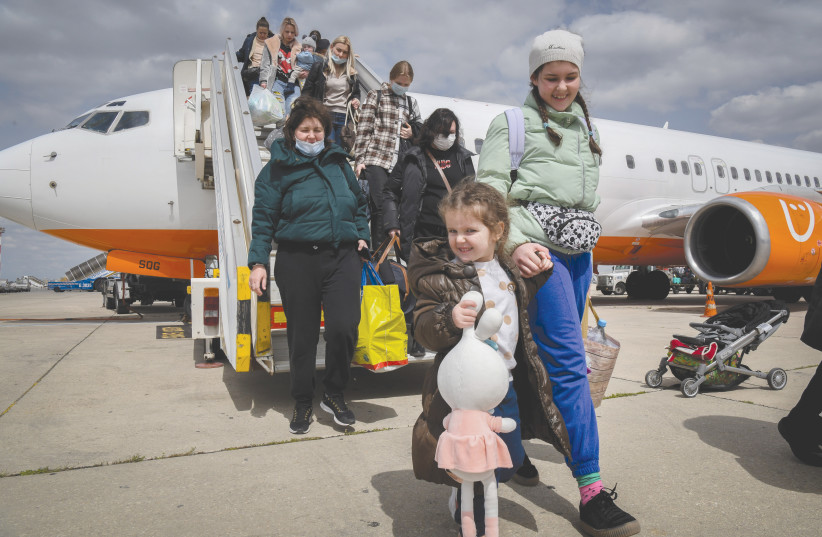Ukrainian-Israeli on Russia's war: I can travel the world but can't go home - interview

TML speaks to Anna Vengerovski, a 25-year-old student at the Hebrew University of Jerusalem about the moment she learned of the invasion and fears for her family in Kharkiv.
In the year since Russia invaded Ukraine, Israel has welcomed tens of thousands of refugees from the country, who joined the 500,000-strong community of Ukrainian nationals already living in the country.
Now, on the first anniversary of the invasion, The Media Line talks to Anna Vengerovski, a 25-year-old Ukrainian Israeli student at the Hebrew University of Jerusalem about the moment she learned that the war had begun, her fears for her family in Kharkiv and her desire to return to the place of her birth.
One year into the war, what are your thoughts?
It's really hard to explain and it's difficult to understand that we are already in this for one year.
I can remember this like it was yesterday. I think that it’s the most horrible day in the life of every Ukrainian. We thought that maybe it was going to be two weeks, maybe it's going to be one month. And here we are, already in this for one year.
And I still can’t go home, can’t see my parents. It’s just sad and it feels unfair like the world is against us.
How do you feel about being away from Ukraine during the war?
It's really hard. I came to Israel eight years ago; I made aliyah. So each year I went home for one month, trying to go as much as possible because after the army comes my studies. But now the understanding that you just can’t do this, it's horrible. You can’t see your family, you can't go there.
Before the war I could go to my city. There was a straight flight for three hours and I’d be home. Now I can’t go there, it’s really dangerous.
I was in Poland two months ago and when I came to Warsaw, which looks like my city, the first thing I started to do was I started to cry...because I understood that I can travel the world, but I can't go to my home, to my parents. I think I understood only when I went abroad that I can’t go home.
Are your parents still there?
Yes. My parents didn't leave their city, Kharkiv. They didn't leave there from the moment the war started and they are still there.
What is their day-to-day life like since the war began?
They're going to work, they're trying to keep life as usual as possible, with lots of sirens throughout the day, with explosions that happen every day.
A person in such a situation, living in a war for one year, they're trying to live the way that they did before - to go work, to go shop, trying to do the basic things that now are not so basic.
Do you know any families who left Ukraine but are now returning?
I know families that left cities that were bombed a lot and now they are coming back to their cities.
They tried to go to another part of Ukraine where there was more silence and there were not so many explosions. But now they're coming back to their cities because they want to go home.
I know someone who was here - she also made aliyah nine years ago - and half a year after the war started, she decided to go back to Ukraine to be there with her parents. I saw on Instagram the day she decided to go back.
Do you ever think about going back?
Yes. I think it is the thought of every new immigrant that comes from another country. When there are hard times, you always think about home and you think about good things.
I remember when the war started, we were just sitting there in shock, feeling that [I am] in a safe place and my family is not.
[I had] the feeling that I gave two years of my life to the Israeli army because I'm Jewish and I’m Israeli and wanted it, and now there is a feeling that I want to give to Ukraine because that's my home, the place that I lived for 17 years.
For a few moments [I had] this thought, but my parents would kill me if I would come.
You mentioned that you served in the Israeli army; how do you feel about Israel's stance on the war?
It's really not a simple situation where Israel is right now, because we have Syria and Russia.
Israel tried to keep the peace and to help Ukraine in different ways as much as possible through humanitarian help and with groups like [Israeli rescue organization United] Hatzalah, and people who came and made the camp for medical [assistance].
But I think the government needs to think about who its main enemy is. I think that it’s always possible to do more, but Israel is trying.
What are your thoughts about the international aid that Ukraine has received overall? Do you think that the world should have done more?
It's two sides of the coin, I think. First of all, we are getting a lot of help from the whole European community, through the United States - money and weapons.
So many countries are also helping Ukrainian refugees, so we can't be thankful enough for this, for this amount of help.
But on the other side, as the little Ukrainian that lives inside of me, I can't understand how this can happen in the heart of Europe in the 21st century. That's the question that I ask myself all the time.
Jerusalem Post Store
`; document.getElementById("linkPremium").innerHTML = cont; var divWithLink = document.getElementById("premium-link"); if (divWithLink !== null && divWithLink !== 'undefined') { divWithLink.style.border = "solid 1px #cb0f3e"; divWithLink.style.textAlign = "center"; divWithLink.style.marginBottom = "15px"; divWithLink.style.marginTop = "15px"; divWithLink.style.width = "100%"; divWithLink.style.backgroundColor = "#122952"; divWithLink.style.color = "#ffffff"; divWithLink.style.lineHeight = "1.5"; } } (function (v, i) { });


